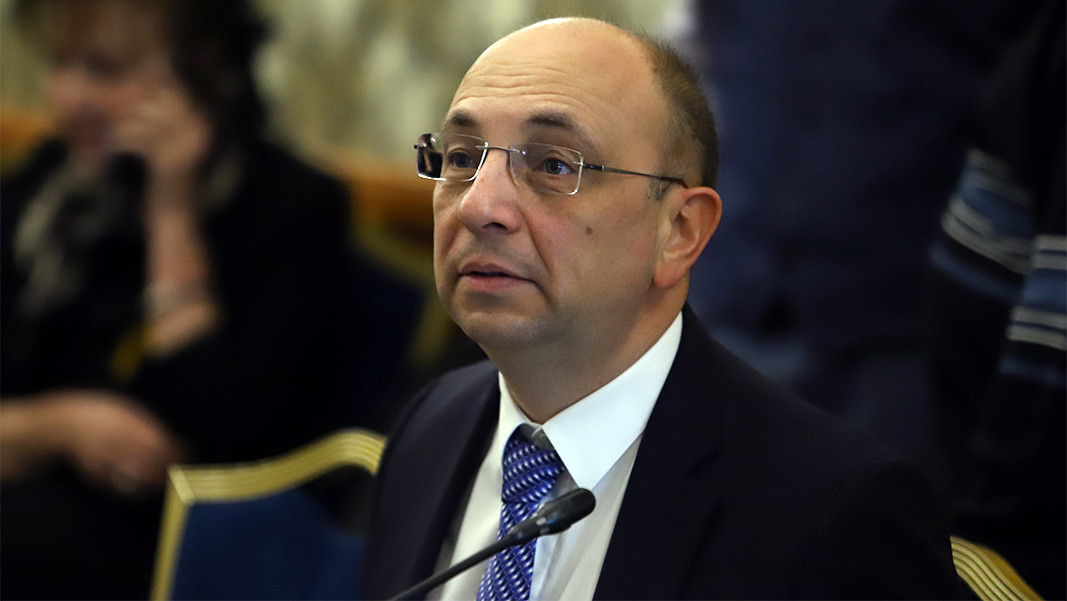The advantages of Bulgaria’s joining the Eurozone by far outweigh the risks, and now, more than 20 years after the introduction of the currency board, when the Bulgarian Lev was first pegged to the Deutsche mark and then to the euro, many experts are predicting that the transition to the Eurozone is going to be smooth and easy.
Bulgaria’s road to the Eurozone as well as its membership as such, is a process that is well-structured and clear, and it will bring institutional predictability and stability to the country. The Eurozone is the second biggest financial market in the world, and it includes some of the richest countries of Europe. Since Bulgaria joined the European Exchange Rate Mechanism in 2020, the country’s actual accession to the Eurozone is the most important decision that has to be made, experts from the Centre for Development and Policies stated at an expert round table in Sofia on the readiness of Bulgaria’s economy for accession to the Eurozone.

But they also expressed some apprehensions – that there exist objective factors that could pose a real threat to Bulgaria’s adoption of the single European currency at the beginning of 2024.One of the stumbling blocks cited is the fact there is no regular government or any clear political commitment to the process of accession. There is no accurate analysis, as yet, of the extent to which the country has met the formal criteria for membership of the Eurozone.

“The Bulgarian banks are already regulated by the European Central Bank and we understand there will be lots of difficulties along the way if we want to demonstrate that Bulgaria is part of the European family,” explains Diana Miteva , chairperson of the Association of Banks in Bulgaria who is actively involved in the preparation and implementation of the pre-accession process. She adds there is only one way for this integration of Bulgarian companies and business to take place: “The sooner we join the exchange-rate mechanism and become a member of the Eurozone, the better the Bulgarian economy is going to develop”.
“It is a hot topic,” Diana Miteva goes on to say. “Because the date – 1 January, 2024, is fast approaching, faster than we had imagined. It is a process we have grown accustomed to talking about in theory, even though in actual fact, the transition to an entirely different legal payment instrument in Bulgaria is a deep transformation of the entire macroeconomy. However, our big advantage is that, since 1997, we have been pegged to the Deutsche mark, and then to the euro. The euro is in the thoughts of a great many Bulgarians. They have no problem turning Levs into euros, especially when they buy a car, real estate or when they shop abroad, then everything is connected with the euro. We, at the Association, have supported the decision for Bulgaria to join the Eurozone from day one.”
But there have been voices against Bulgaria’s entry into the Eurozone.Some fears are irrational, others are based on false facts and theories, but by adopting the euro, Bulgaria stands a very real chance of a positive change, and also joining the Eurozone is at least 10 times easier than joining the EU, says former minister of economy Nikolay Vassilev, also a participant in the round table:

“In 2005 we all believed we would join the Eurozone in 2009, but now inflation is on the rise. That is the reason why, back in 2005 we were much closer to the Eurozone because there was no inflation like this, and because we had zero government deficit,” Nikolay Vassilev says. “Still, inflation is a minor problem but it could stop us from entering the Eurozone. I believe that our failure would be because the political will is lacking, because the country is lacking the kind of image that would induce Western countries to invite and accept us with pleasure. They don’t want us, plain and simple. Just imagine if the countries of Western Europe were to decide, today, whether to let Bulgaria enter the EU, what do you think they would decide to do? I wouldn’t want to even think about it. To go back to the issue – the big advantages from our entering the Eurozone are not primarily economic. There is no doubt there will be more trade, more tourism, investments, that is abundantly clear. And if we don’t go all the way, that would mean that all of us – people with experience, with positions, public figures, we haven’t done enough to explain to Bulgarian society things that are clear enough, and not just to specialists.”
The average price of apartments sold in Sofia in the third quarter of 2025 reached €2,310 per square metre , marking an annual increase of 25.5%, according to data from Bulgarian Properties. While new developments remain popular, limited supply and..
Natural gas prices in Bulgaria are set to fall by just over 4% in December , significantly higher than the previously forecast 1% drop, according to calculations by state-owned supplier Bulgargaz, reported BNR correspondent Yuliyana Kornazheva. This..
The Executive Board of the International Monetary Fund (IMF) has concluded the 2025 Article IV Consultation with Bulgaria. According to the IMF’s procedure for assessments and recommendations, domestic demand is driving a robust expansion of the..
The average price of apartments sold in Sofia in the third quarter of 2025 reached €2,310 per square metre , marking an annual increase of 25.5%,..
Natural gas prices in Bulgaria are set to fall by just over 4% in December , significantly higher than the previously forecast 1% drop, according to..

+359 2 9336 661
